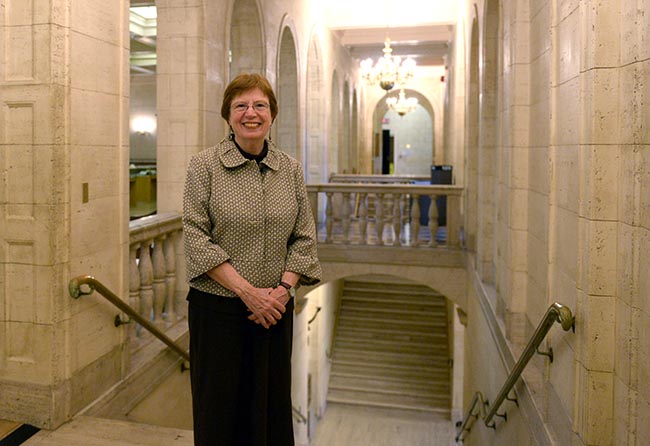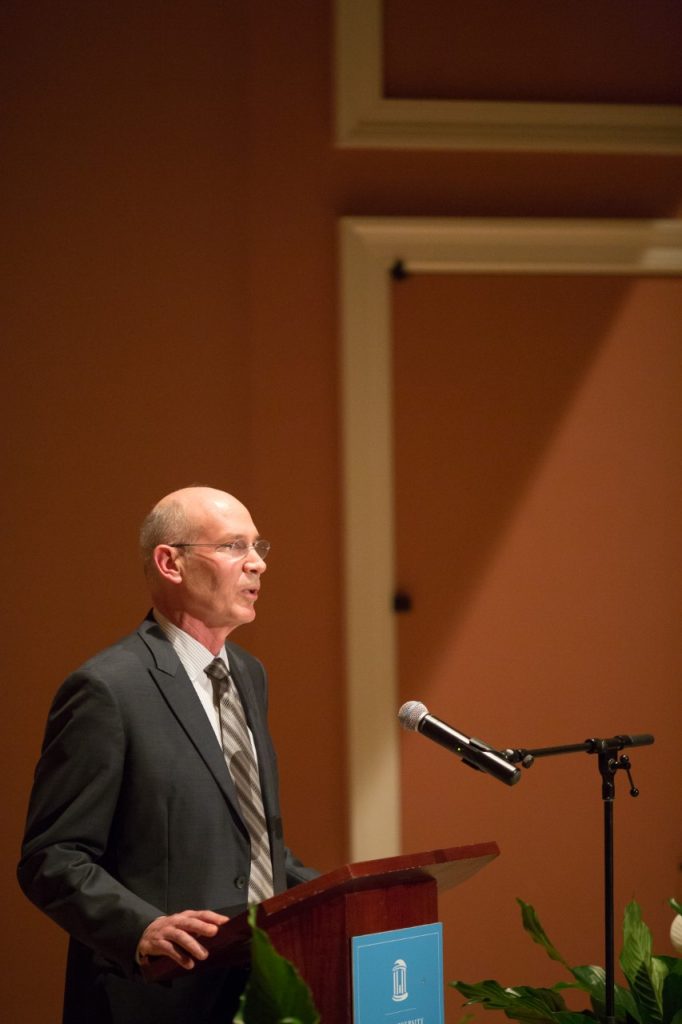Hunter Rawlings, president of the prestigious Association of American Universities (AAU), will share his views about research universities Sept. 27 as part of the University’s yearlong conversation about the future of U.S. public higher education.
Rawlings will give a free, public lecture at noon in Gerrard Hall. The campus community is invited to attend.
Rawlings became AAU president in 2011. Previously, he served as president of Cornell University from 1995 to 2003, and as interim president for one year between 2005 and 2006. He was president of the University of Iowa from 1988 to 1995.
As AAU president, Rawlings directs an organization of 61 leading public and private research universities in the United States and Canada. Founded in 1900, AAU focuses on issues that are important to research-intensive universities, such as funding for research, research policy issues and graduate and undergraduate education. The 59 U.S. members award more than half of all U.S. doctoral degrees and 55 percent of those in the sciences and engineering. AAU membership is by invitation; UNC-Chapel Hill joined in 1922.
In recent national opinion-editorial columns, Rawlings has articulated the need for the nation’s research universities to improve undergraduate education as public campuses receive less state support and more students struggle to keep up with mounting college debt and fewer job opportunities after graduating.
Those themes overlap with the launch of a campus-wide conversation this fall focusing on a 21st Century Vision of the Public University, an initiative undertaken by Chancellor Holden Thorp and the Board of Trustees. The resulting report, due next May, will help shape the University’s future and provide a foundation for the next fundraising campaign.
Thorp invited Rawlings to give the campus lecture and meet with trustees.
“As the nation’s first public university, it’s fitting that we look at important issues facing our peers: college access and completion, undergraduate education and how faculty research can help solve the world’s most pressing problems,” Thorp said. “Hunter Rawlings is one of American higher education’s most articulate spokespersons. His insights will be invaluable in helping guide our conversations about Carolina’s future aspirations.”


